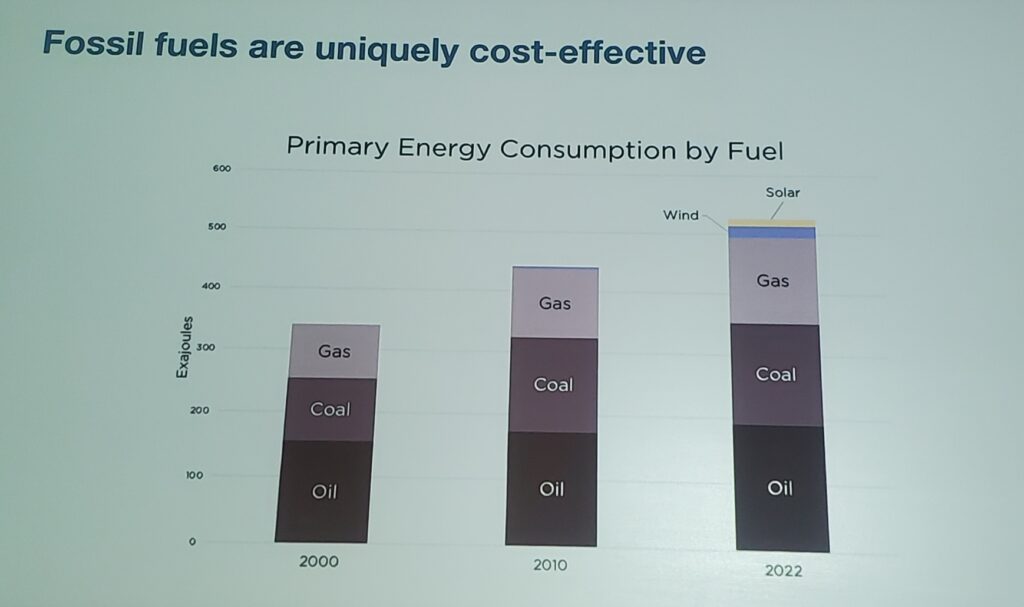Author and energy advocate Alex Epstein delivered a provocative keynote at the Alaska Sustainable Energy Conference, challenging dominant environmental narratives and making the case for energy freedom, a framework rooted in human flourishing, autonomy, and the unapologetic development of natural resources.
Epstein, best known for his book The Moral Case for Fossil Fuels, argued that Alaska’s history has unfolded in parallel with the rise of the modern environmental movement, a movement he described as fundamentally opposed to human impact on nature. He contended that this ideology views human impact as intrinsically immoral and inevitably self-destructive, an assumption he urged Alaskans to reject. In essence, he said, they are fundamentally opposed to human existence.
According to Epstein, the net-zero movement is the most powerful expression of this anti-impact worldview, demanding “limitless sacrifice” to avoid affecting the climate, often at the cost of human prosperity and innovation. He grouped fossil fuels and nuclear energy, two industries he described as “high-impact, complex, and revolutionary,” as early targets of this ideology.
We must confidently reject anti-humanism, Epstein said, underscoring his call for Alaskans and all Americans to embrace responsible development as a moral imperative. Americans must demand the right to develop and prosper, he said, asserting that energy has been the engine of American progress.

Epstein challenged the conventional meaning of the word impact, encouraging a redefinition rooted in purpose and progress. Does a bird think about impact when it builds a nest? Does a beaver calculate the environmental cost of its dam? He argued that humans, too, are a part of nature and should stop behaving like a self-hating species.
One third of the world — 3 billion people — still use wood and animal dung to cook their food and heat their shelters, he said. There is a direct correlation between reliable, affordable energy and human quality of life. As for air quality, Epstein said if the Clean Air Act existed while early humans were discovering fire, they would not have been allowed to use it.
Rather than minimizing impact, Epstein advocated for environmental improvement, enhancing nature in ways that expand human opportunity. He emphasized that fossil fuels remain uniquely cost-effective and essential to human flourishing, offering what he called “incredible climate mastery” and reliability.
Epstein also issued a policy challenge: to fight for energy freedom, permitting reform, and local control. He highlighted the opportunity provided by what he called an “incredibly supportive” federal administration and recent Supreme Court decisions that open the door for greater state autonomy in energy policy. He called on Alaska to seize that moment, push for bipartisan permitting reform, and insist that the federal government defer to the state on permitting decisions.
Epstein’s remarks were a direct appeal to Alaskan lawmakers, industry leaders, and citizens to resist external pressure from those who, he said, benefit from past development but now seek to restrict others from doing the same.
Alaska has the resources, the ingenuity, and now, the momentum, he told the audience in Anchorage. It’s time to embrace energy freedom, not just for Alaska, but as a model for the nation.
Check links below for our complete coverage of the Alaska Sustainable Energy Conference:
